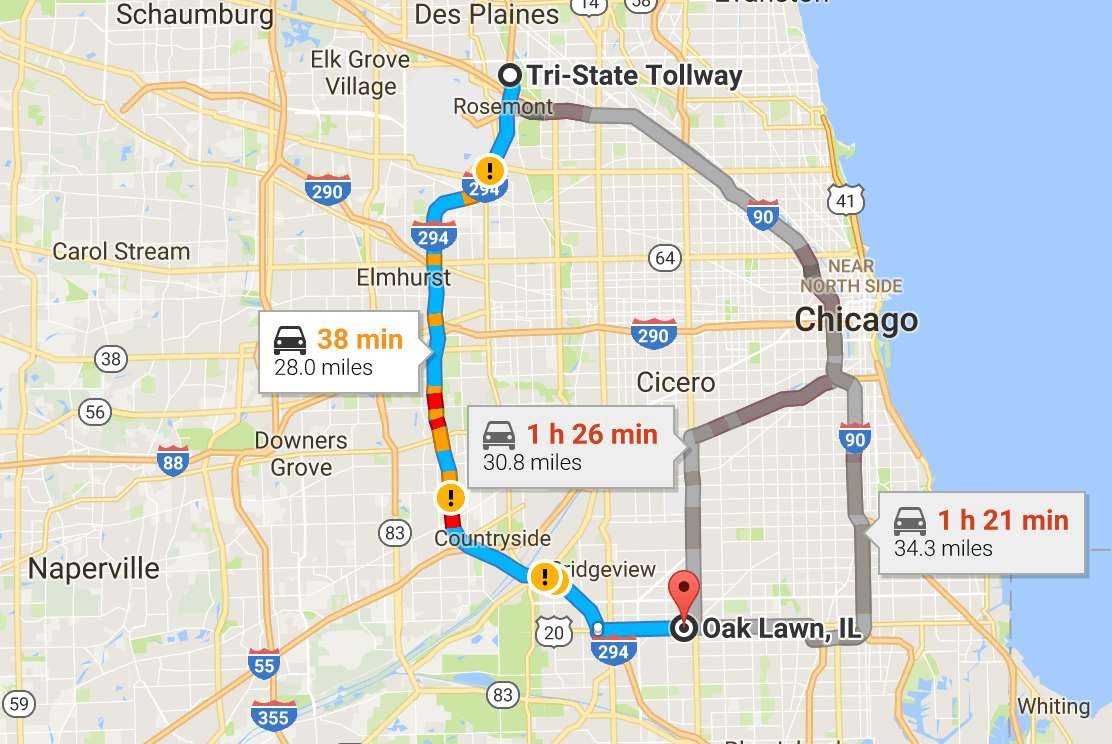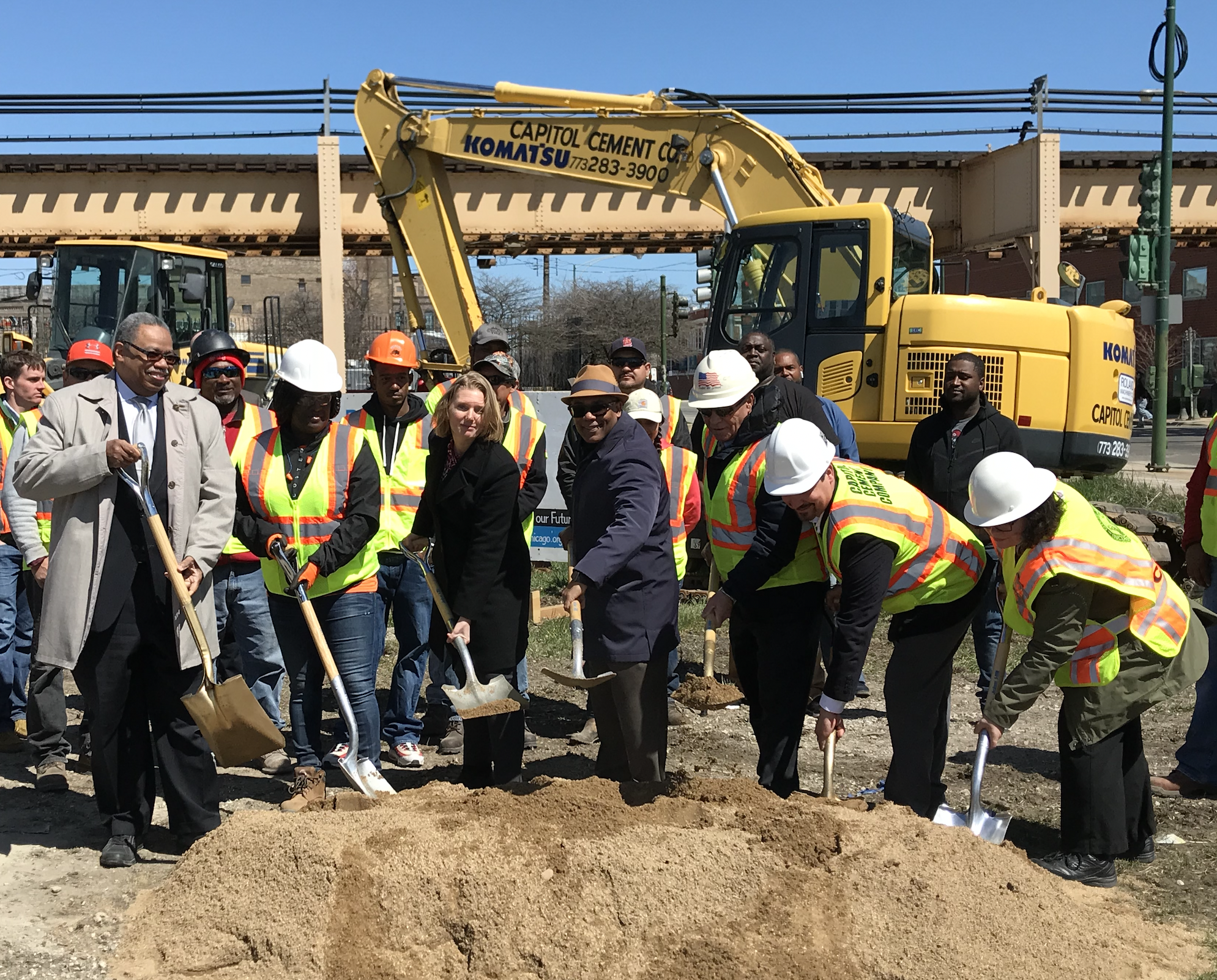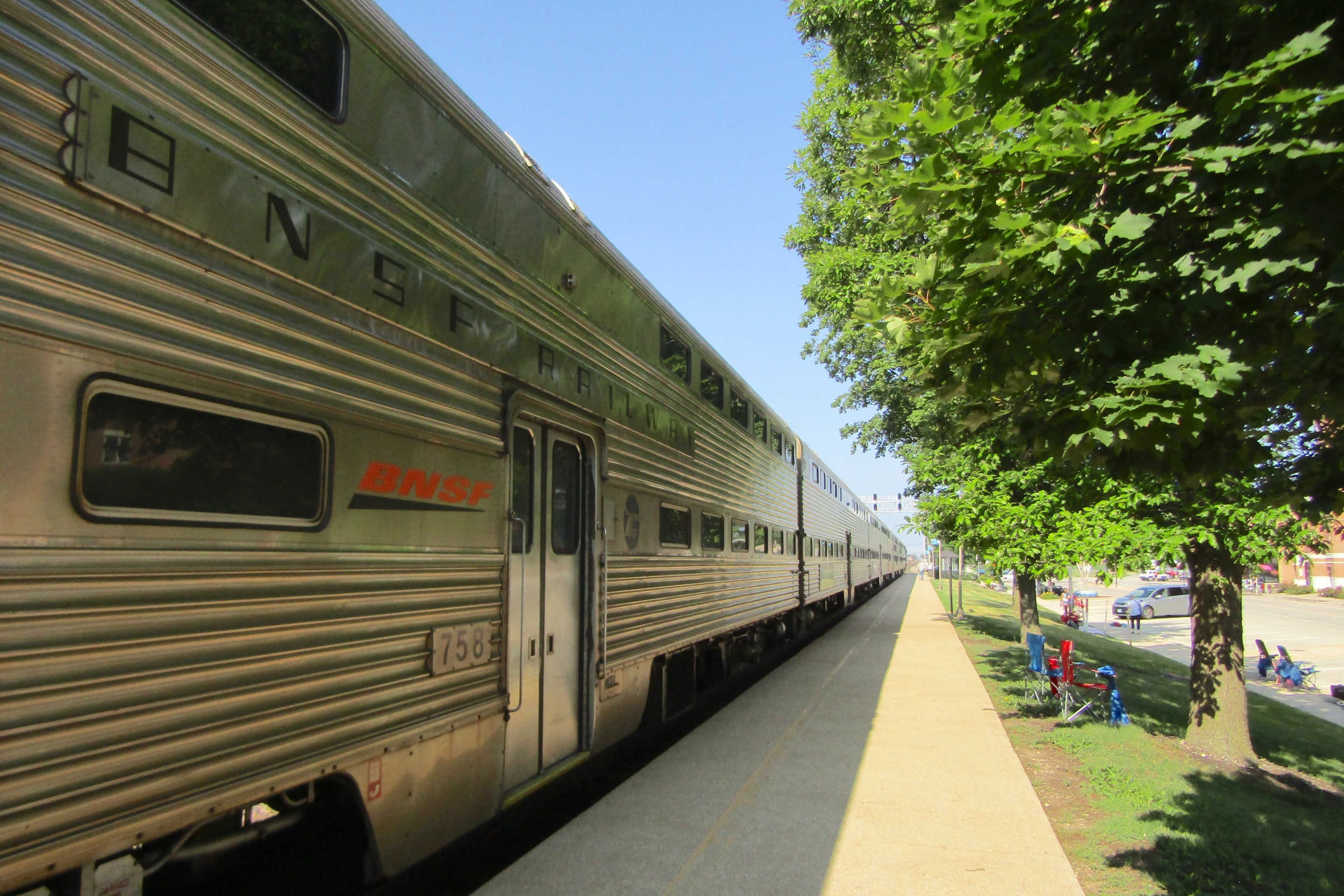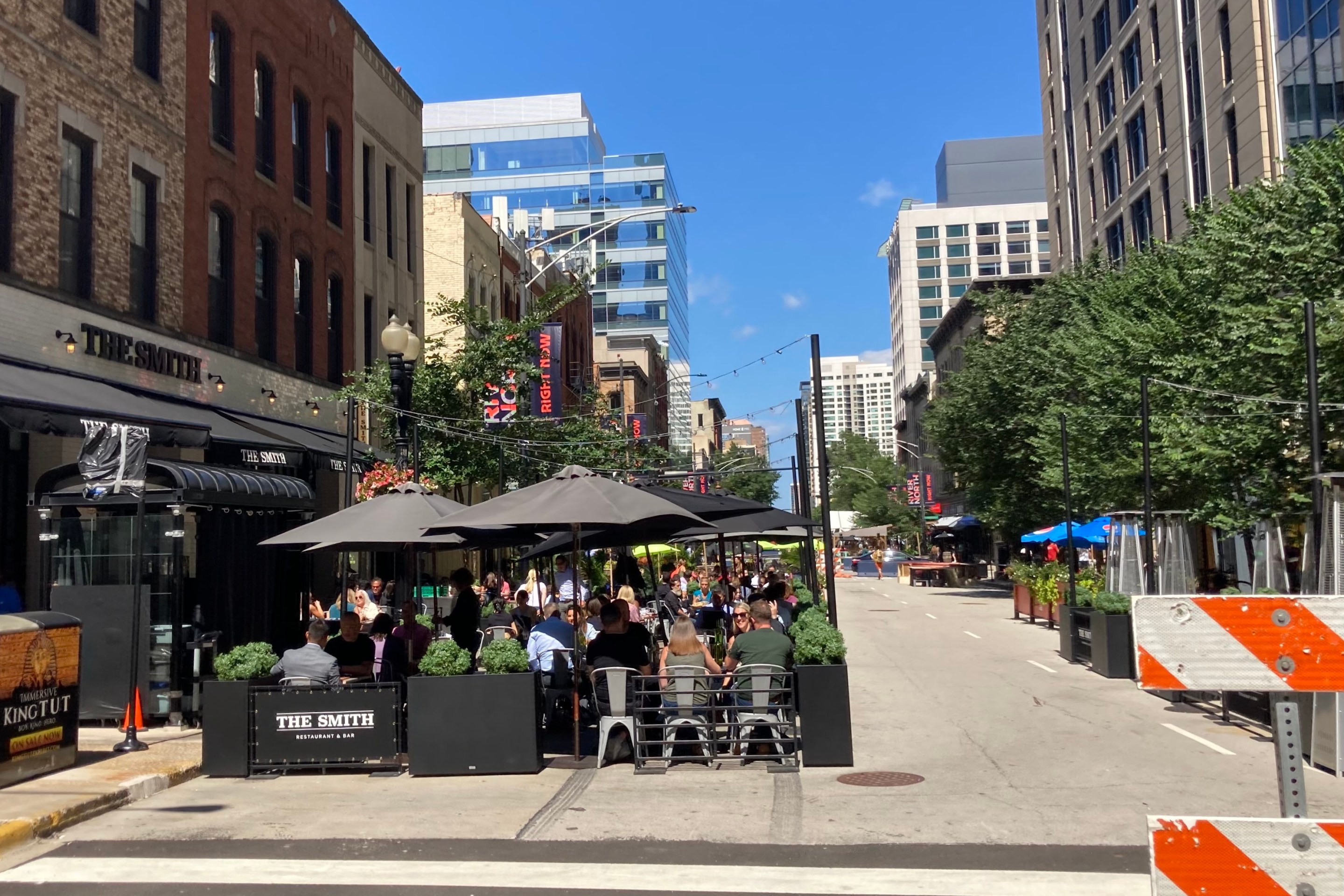Yesterday the Illinois Tollway board approved a $4 billion plan to widen the Tri-State Tollway (I-294), an Interstate that bisects the Chicago region from east to west, by adding an additional lane in each direction. The tollway board stated that the expansion is needed because traffic congestion is so bad on the tollway that drivers often experience 20-minute delays. They argued that adding lanes will result in a return of $330 million in economic productivity, because people won't be stuck in traffic as often. In reality, adding new asphalt on the 22 miles of the Tri-State between Rosemont and Oak Lawn would be a waste of money because highway expansion inevitably induces more traffic, canceling out the added capacity.
On the bright side, the board promised that the $4 billion will come from tolls, rather than general tax revenue, so that people who don't drive on the Interstate won't have to pay for it. But the expenditure will still almost certainly be a massive waste of funds, because study after study shows that when new lanes are added to congested highways, they tend to fill up with cars again within a few years, a phenomenon known as induced demand.
The current congestion on the generally eight-lane Tri-State isn't due to a lack of capacity. The real problem is that there's a spatial mismatch between where people live, work, access health care, and socialize. This issue, combined with limited transit access, forces the majority of people in our region to make most of their trips by car.
If that $4 billion was instead spent on improving regional transit service, it would have a much greater impact on reducing congestion, not to mention reducing pollution and improving quality of life, and the investment would provide much more bang for the buck in terms of economic benefits.
It would have a greater effect on the quality of life, pollution reduction, and congestion reduction if even a quarter of that money was spent on transit. Investing in public transportation rahter than highways creates far more jobs, and transit access sustains or increases property values.
Granted, the Tri-State plan calls for creating "flex lanes" on the inside shoulders of the highway for buses, (and ambulances and police cars), which would be a positive thing. But as the Active Transportation Alliance's Ron Burke recently told the Chicago Tribune, any increase in bus ridership will represent a "drop in the bucket" compared to all the new car trips enabled by the expansion.
As reported in the Daily Herald, residents and leaders in Oak Brook and Hinsdale have voiced opposition to the TriState plan, noting that it will result in more pollution and lower property values. But their arguments are largely falling on deaf ears due to the Illinois Tollway's mission to facilitate driving.
The underlying problem is that even if the Illinois Tollway wanted to invest more money in improving transit access, they wouldn't have that option. State law mandates that the only strategies the tollway can use to fight congestion are to raise tolls, which is politically unpopular, or build new roads. The result is the vicious cycle of congestion, highway expansion, induced demand, and more congestion. Sadly, it looks like this syndrome will play out once again on the Tri-State.




